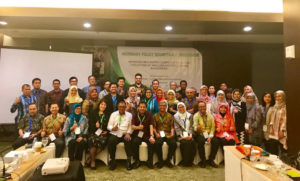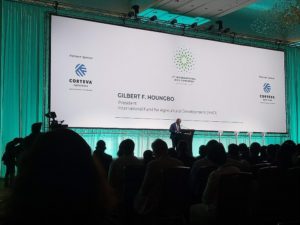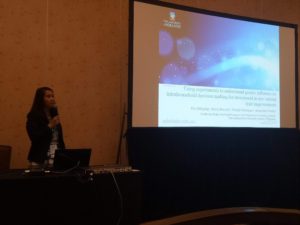Blog post prepared by Livia Padilha
Recently, I attended a workshop on “Agricultural Research Leadership and Management” with some of my fellow PhD students from Centre for Global Food and Resources (GFAR) . The workshop was organised by Researchers in Agriculture for International Development (RAID) and The Crawford Fund.
The two and a half day workshop was aimed at presenting participants tools related to managing and leading in the context of agricultural research for international development. One of the most interesting things about this workshop was the diversity of the workshop participants. There were PhD students, early career researchers and experienced professionals from varied educational backgrounds and experience.
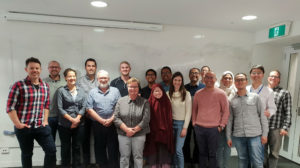
RAID Workshop Participants
Prof. Shaun Coffey and Lynne O’Brien from The Crawford Fund were the presenters and led the workshop. Both introduced key concepts and discussed with the group, themes such as challenges in leading research activities in different countries, dealing with human resource issues in fieldwork, introducing concepts of organisational leadership, and managing discussions in cross-cultural contexts. During the first day, we shared our experiences on management/ and leadership with Shaun. We focused on questions regarding different cultural environments we work in. As most of the participants had experience of working in international projects, there was active participation from everyone and a healthy group discussion.
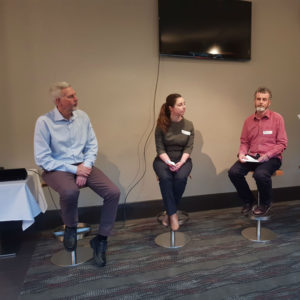
From Left: Mr. Peter Ninnes, Prof. Sarah Wheeler and Dr. Peter Hayman at the panel discussion
In the evening of the first day, RAID had organised a networking event and a panel discussion. Participants and other interested people from the R4D space had a chance to listen to a panel on ‘Challenges of managing and leading international research for development projects’ from Prof. Sarah Wheeler, Associate Director of Research at GFAR, Dr. Peter Hayman Principal Scientist, South Australian Research and Development Institute (SARDI) and Mr. Peter Ninnes, International Research for Development Consultant). Prof. Wheeler talked about her experience as a female researcher working in international projects and her views on the need of maintaining gender equity in agricultural research for development. Dr. Hayman spoke about his experiences of working and managing teams with people from varied backgrounds and Mr. Ninnes spoke about his experiences of working in different African countries.
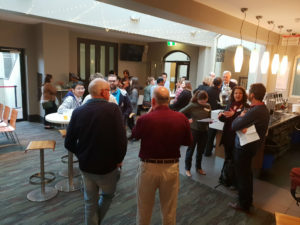
Participants at the networking event
On the second day of the workshop, Lynne conducted interactive exercises, where we had the opportunity to role play in different situations and got insights into good vs. bad leadership, how to manage difficult conversations and guidance on providing constructive feedback to people you manage in a team. It was a very productive day where we also explored self-awareness regarding our personal leadership styles and how certain characteristics can influence our managerial and leadership skills. We discussed what are the strengths and weakness from each style and which one to pay more attention to, in order to improve in that sphere.
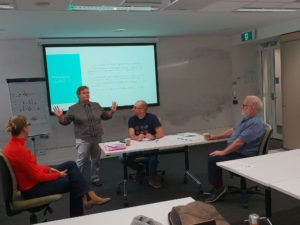
One of the group activities
The last day was focused on projects, or as we may also call, a ‘currency’ researchers work with. One of the main practical exercises we had to do was how to develop a project and its delivery, but especially how to translate project objectives into KPIs (Key Performance Indicators). The group was divided into two subgroups and was asked to build a research team, considering all the information we had learned, this activity involved defining roles, setting goals and measure our project success.
Overall, the workshop and the panel session provided us with new skills to better ‘navigate’ our professional environment. In addition, it was a valuable chance to get to know researchers from other institutions and outside academia, to share our thoughts and current activities with them.



